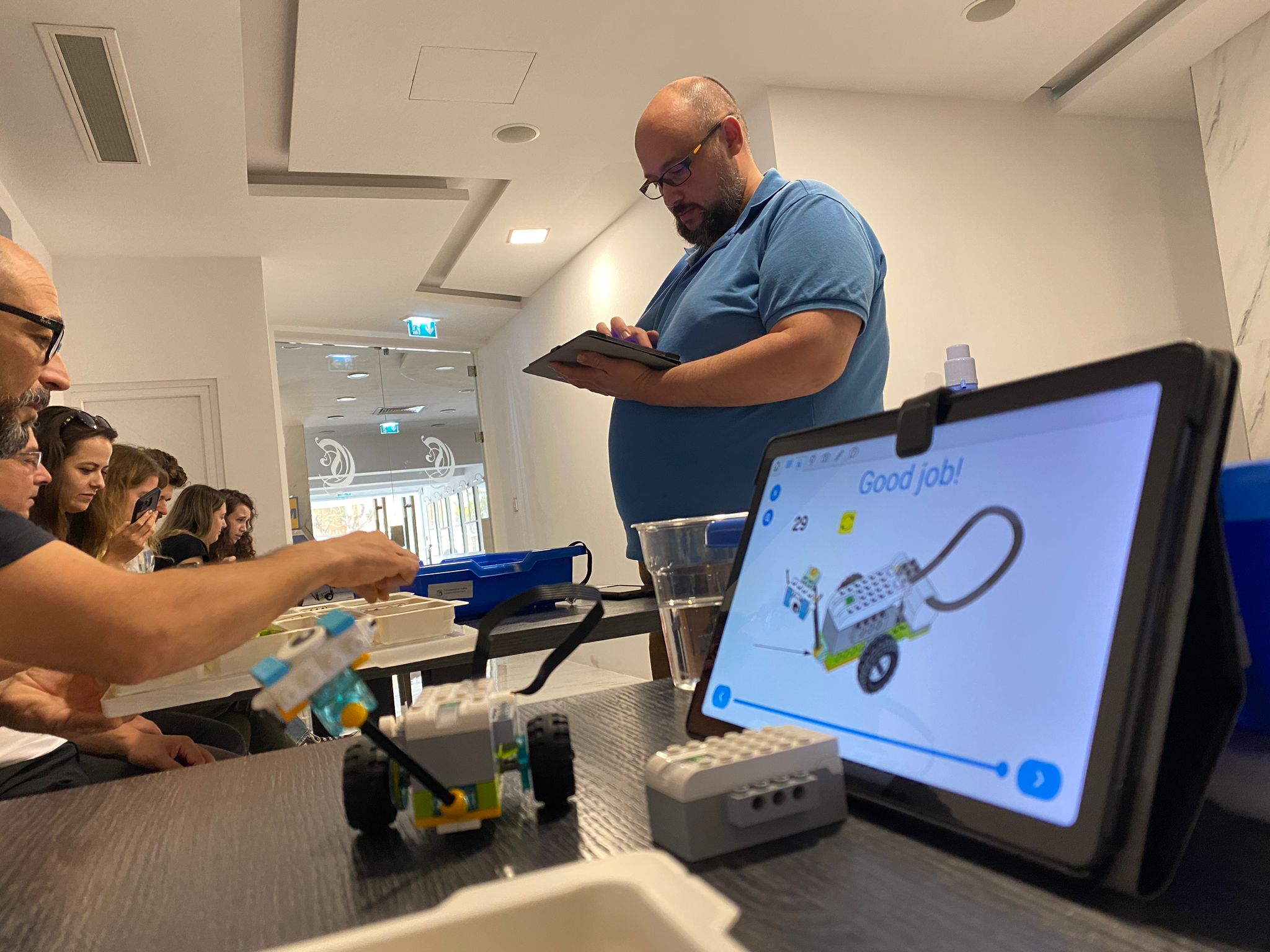2021-1-MT01-KA153-YOU-000011385 Nolu 123…BLOCKS! Projct coordinator is FINGERPRINTS Malta Partners are HORIZONS FOR YOUTH Yunanistan, NGO YOUTH CLUB ACTIVE Estonya, NETWORK FOR EUROPEAN CITIZENSHIP AND IDENTITY Güney Kıbrıs, ADEL SLOVAKIA, ASSOCIACAO CHECK-IN – COOPERACAO E DESENVOLVIMENTO Portekiz, VSI UMUNTHU Litvanya ve TOKAT EKONOMIK KALKINMA VE MESLEK EDINDIRME DERNEGI Türkiye
We know the importance of digital technology in our world and we also know how this can support the youth that we work with. Through different support methods we can help our youth seek employment, believe in themselves and their strengths and be able to overcome their fears.
This Training Course is designed for youth workers and youth leaders that are interested in technology and interfacing. During this training we will use the well-established Lego kit, Lego Mindstorms Education EV3 set. In this particular training we will be familiarizing ourselves with the intelligent EV3 Brick and assorted sensors and motors.
Through this they will learn how to control the Driving Base and trigger events based on input from the selected sensors and get the fundamentals of more complex topics, such as programming loop, arrays, data wires, switches and much more.
The aim of this course is to give the individuals the knowledge that they need to manipulate the hardware and software components that make up the Robot Educator Content Pack and Lego Mindstorms Education Software. The outcome after this training the participants will evolve in:
Teamwork and Social Skills, Communication and Language skills Lowering Anxiety and Stress, Problem solving, Mathematics and Spatial Awareness, Creativity and Experimentation, Physical Development, Perseverance and Management of Frustrations, Self-Confidence, Patience, Focus and Concentration.
Working methods:
During the training course the themes will be approached in workshops and smaller work groups. We will try to make sure that the participants will be able to express their opinions and themselves through activities that are varied and interactive and will rely upon the abilities and strengths of the participants.
We will pay attention that all of the participants would be able to express their opinion and share ideas in accordance with their language competencies. In the group work we will use methods that energise and motivate everyone. We will always start with some motivating activities such a video or a case study or a role play, so everyone even those who have some lower language level to tell their opinions and then move to talking in front of bigger groups. The chosen methods will be: non formal learning approaches using simulations, role plays, energizers, reflections/debriefing, case studies/hands on designing.
The basics of our methodologies are active co-operative learning combining experience and theory implementation. This way we will define our methods: learning by games, round-table conference, moderated discussions, learning by doing, plenary sessions, interactive work based on advanced preparations, creative workshops with coaching.
It is sometimes said that in international projects cultural stereotypes might affect the working procedure and the team spirit. The group leaders will prepare the participants in advance for the possible conflicts and will work on that the participants will be tolerant and respectful with each other. The proposed games, workshops and discussions will also serve this purpose as the participants will be able to spend long time with mixed groups. We will also organise cultural evenings where promoters will have the opportunity to show aspects of their country, region and language. This will enhance the acceptance and enforce social inclusion in practice.
We plan activities for enhancing the process of NFL. All activities will be targeted. That means all activities will be organized and structured according to our objectives. Moreover we will focus on the participants’ motivation and interest during the training period. As soon as the project will be approved by the NA we will search and ask for the participants’ learning and practical experiences and needs for self-improvement and so we will plan our daily agenda of NFL accordingly. We also planned not so strict in implementation and timeline activities because we aim to flexibility during learning process and in methods and approaches.

